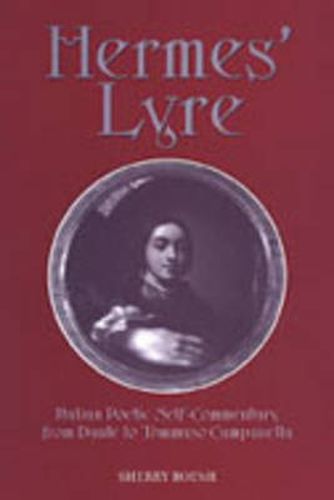Readings Newsletter
Become a Readings Member to make your shopping experience even easier.
Sign in or sign up for free!
You’re not far away from qualifying for FREE standard shipping within Australia
You’ve qualified for FREE standard shipping within Australia
The cart is loading…






From the mysterious glosses by ‘EK’ in the poetry of Edmund Spenser, to the self-commentary in Vladimir Nabokov’s Pale Fire, readers of literature have been fascinated by the comments, addenda, and footnotes added by authors to their own work. In this insightful and original work, Sherry Roush investigates poets’ motivations for writing glosses. She argues that self-commentary differs fundamentally from standard commentary, and that it does not necessarily impose an authoritative reading, determine the poem’s significance, or furnish factual autobiographical information. Rather, self-commentary presents an intriguing ulterior poetic dimension and adds to the inherent tension of the text.
Roush focuses her study on three pairs of authors, each representing a distinct historical-contextual period: Dante and Boccaccio in the early Italian self-commentative tradition, Lorenzo de’ Medici and Girolamo Benivieni in high Renaissance Florence, and Giordano Bruno and Tommaso Campanella at the turn of the seventeenth century. Through numerous examples, Roush highlights the non-linear development of this mixed genre, and shows how poetic self-commentaries respond to unique literary, historical, and political exigencies, and offer keys to understanding the underlying poetic message. This seminal study will be of particular value to scholars interested in poetry, hermeneutics, autobiography, and Renaissance studies.
$9.00 standard shipping within Australia
FREE standard shipping within Australia for orders over $100.00
Express & International shipping calculated at checkout
From the mysterious glosses by ‘EK’ in the poetry of Edmund Spenser, to the self-commentary in Vladimir Nabokov’s Pale Fire, readers of literature have been fascinated by the comments, addenda, and footnotes added by authors to their own work. In this insightful and original work, Sherry Roush investigates poets’ motivations for writing glosses. She argues that self-commentary differs fundamentally from standard commentary, and that it does not necessarily impose an authoritative reading, determine the poem’s significance, or furnish factual autobiographical information. Rather, self-commentary presents an intriguing ulterior poetic dimension and adds to the inherent tension of the text.
Roush focuses her study on three pairs of authors, each representing a distinct historical-contextual period: Dante and Boccaccio in the early Italian self-commentative tradition, Lorenzo de’ Medici and Girolamo Benivieni in high Renaissance Florence, and Giordano Bruno and Tommaso Campanella at the turn of the seventeenth century. Through numerous examples, Roush highlights the non-linear development of this mixed genre, and shows how poetic self-commentaries respond to unique literary, historical, and political exigencies, and offer keys to understanding the underlying poetic message. This seminal study will be of particular value to scholars interested in poetry, hermeneutics, autobiography, and Renaissance studies.